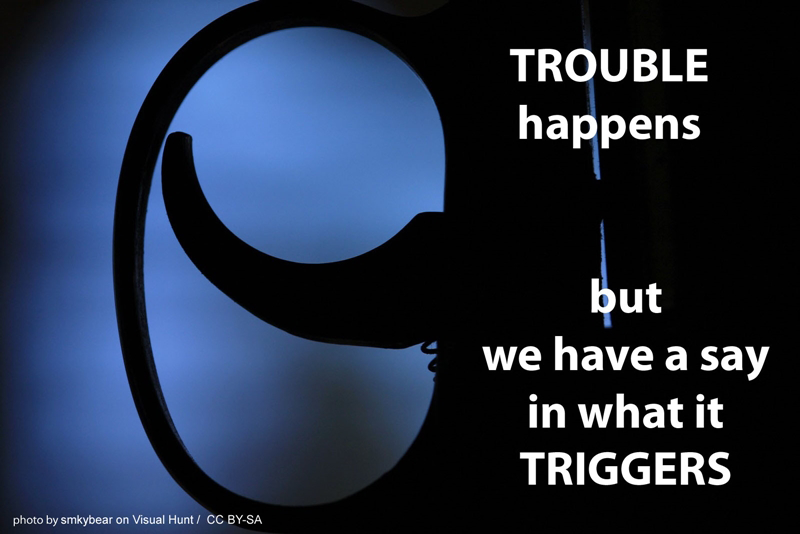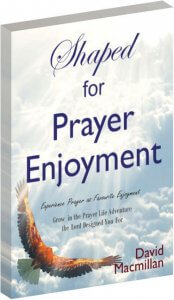Life on earth is a flawed tapestry. Its beauty is broken by huge blotches of ugliness. Brilliant colours are laced with dark threads of trouble. Trouble is unavoidable; it’s as certain as sparks fly upwards (Job 5:7). We seldom get to choose our trouble, but we do have a say in what it triggers.
Mostly, trouble is part of the chaos of a world out of sync with God. But problems can also be a direct harassment from Satan. And, at times God himself is the initiator of a storm; creating a crisis to accelerate a plan. The great comfort is this: regardless of who authors the trouble, the Lord’s love is always ready to edit it for our good.
Paul writes: We continue to shout our praise even when we’re hemmed in with troubles (Rom 5:3 MSG). Most of us will admit that a shout of praise is usually not our first reaction to trouble.
The arrival of bad news, difficulty, hardship, misfortune, storms (or ‘trouble’ by any other name) can trigger a groan of disappointment, a complaint, an explosion of anger or silent gloom. Trouble, in one form or another, is inevitable, but the kind of response it triggers isn’t. We get to choose that. Paul chose ADMIRATION of the Lord. That can include celebration, wonder, thanks, praise, adoration or desire for God (for more read The Admiration Priority). It seems the apostle’s favourite (even when hemmed in with troubles) was to shout our praise.
Yes, we know that trouble (suffering) shapes perseverance, which shapes character, which shapes hope (Rom 5:4). This is one of the ways, the Lord lovingly edits trouble for our good. But, when trouble hits, it doesn’t offer a preview of the future good outcome. So our admiration response is triggered, not because we can see the good ending, but because we see him. And he promises that – no matter how hemmed in we are – he will never leave us without a view of himself.
Two quick examples of King David in life-threatening crises. He notices something of the Lord’s beauty embedded in his trouble. Making the trouble-to-admiration connection doesn’t erase his trouble, but it does make a difference to the way he faces it.
Psalm 59 David is under attack by conspirators on Saul’s payroll (1-7). He is weak and vulnerable. That awareness of his helplessness points him to something always true of God: STRENGTH. So this becomes his admiration focus: O my Strength I watch for you….I will sing of your strength in the morning… O my Strength I will sing praise to you (9, 16, 17).
His trouble could have triggered fear, anxiety, despair or some other stress-reaction to the circumstance. And that would have made his cry for help a desperate panic plea rather than an appeal in trust (1-2, 4). Instead, he allows his trouble to be a trigger for admiration of the Lord’ strength.
Psalm 57 David is hounded by men who are ravenous beasts. Betrayed and wrongly accused, he takes refuge in God and asks for his mercy. But there’s more. His trouble alerts him to features of Glory, qualities always true of the Lord, and absent in those wronging him: great LOVE and great FAITHFULNESS. So David makes the connection; his trouble becomes a trigger for admiration of God’s love and faithfulness (10).
Trouble can trigger all kinds of harmful reactions in us. Or it can trigger a prayer response that shows trust in the Lord and enjoyment of his Glory. We get to choose.
If you’re facing trouble, the Lord hasn’t left you without a view of himself. Ask for his help to see something of his Glory in it. Make the connection; let the trouble become a trigger for praying (or shouting) your admiration of him. Make it a hot connection – ready for immediate use each time a circumstance or memory of the trouble stirs up a fresh stress-reaction.
If you are currently in a trouble-free zone, wonderful! But do the above on behalf of someone who is hemmed in. Then, if it seems right, share with them your admiration of the Lord that was triggered by their trouble.




